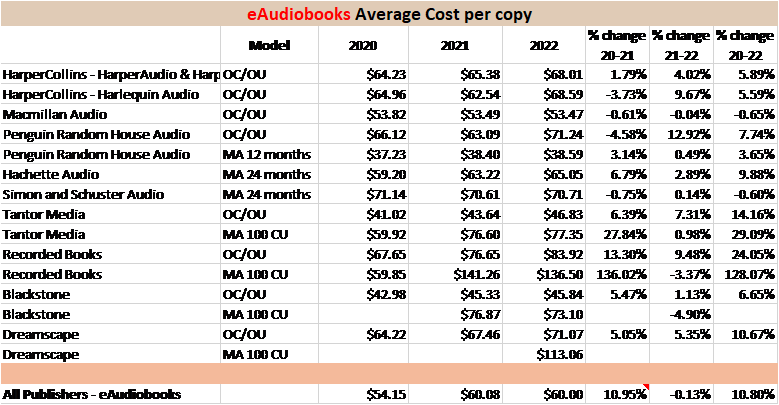A Follow-up on Authors for Libraries
/Last Friday I posted about an open letter from Fight for the Future signed by (then) 300 authors asking for the publishers to give a better deal to libraries for digital content:
Enshrine the right of libraries to permanently own and preserve books, and to purchase these permanent copies on reasonable terms, regardless of format.
End lawsuits aimed at intimidating libraries and diminishing their role in society.
End smear campaigns against librarians.
The post noted that various trade associations were saying that the letter was misleading and a crypto-campaign sponsored by the Internet Archive. That latter claim rang to bizarre that I quickly, and correctly, called it phony and a smear. Now Lia Holland from Fight for the Future has gone further, calling out the Authors Guild’s lies forcefully and devastatingly.
Here are some samples, but do read the entire reply!:
The statement from the Authors Guild specifically asserts, without evidence, that “multiple authors” who signed this letter feel they were “misled”. This assertion is false and we challenge these lobbyists to either provide evidence for their claim or retract it.
One author, named in the Authors Guild statement, did ask to be removed from the letter last night just before it was published. We respected and complied with his request. But it is utterly false to claim that he never agreed to sign the letter or that we “misled” him about its contents. We have the paper trail to show as much. Any lobbyist claims to the contrary are easily, provably false and we will provide screenshots of our communications to journalists on background if requested.
Any assertion that authors are unable to read and understand this letter is condescending—the truth is that the publishing lobby must accept is that not all authors and creative workers share the common view in corporate publishing that the censorship and surveillance inherent in the maximalist copyright system they support are necessary to ensure fair compensation for creative labor.
Further, the Authors Guild appears to assert in an email to their membership that there have been various “versions” of the letter in circulation, implying that Fight for the Future fooled authors into signing one version and then disingenuously made a bunch of alterations. That assertion is wholly false. There has only ever been one version of this letter.
There are many issues in which we agree with organizations like the Authors Guild, and we hope to work together in coalition someday on important issues surrounding artists’ rights such as antitrust legislation, book bans, Amazon’s exploitation of authors, or the truly abhorrent under-compensation of authors and publishing professionals amid record profits in big publishing. For now . . . While the corporate publishing lobby would love to live in a world of monochromatic author groupthink, unfortunately today they must face once and for all that many authors disavow the idea that libraries should take a lesser role in the ownership and preservation of books in the digital age.
As part of a group whose work has been falsely labeled as supported by “Big Tech” with the aim of undermining copyright—both allegations are lies—I recommend believing Fight for the Future in this dispute. It’s shameful that various trade organizations and affiliated bloggers rely on disinformation when engaged in a defense of big publishers’ library ebook practices. Oh well, on the surface it certainly looks better for them than admitting the truth: that digital is unfairly priced because libraries currently have no right of first sale in digital and the publishers can get away with it because librarians want to meet public demand for reading.



